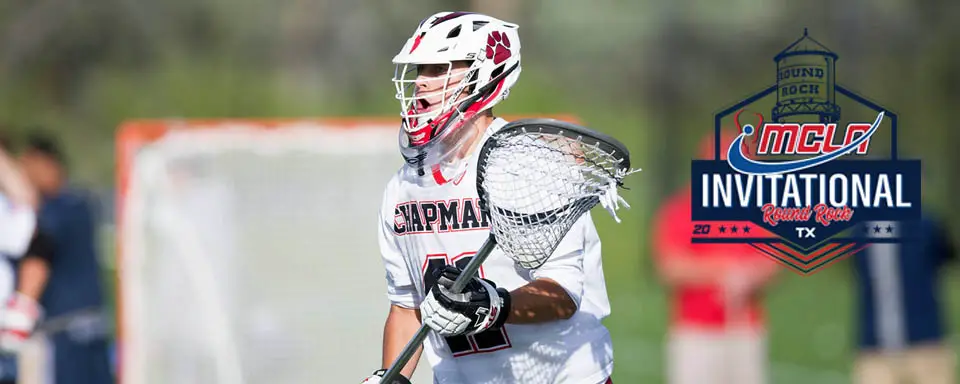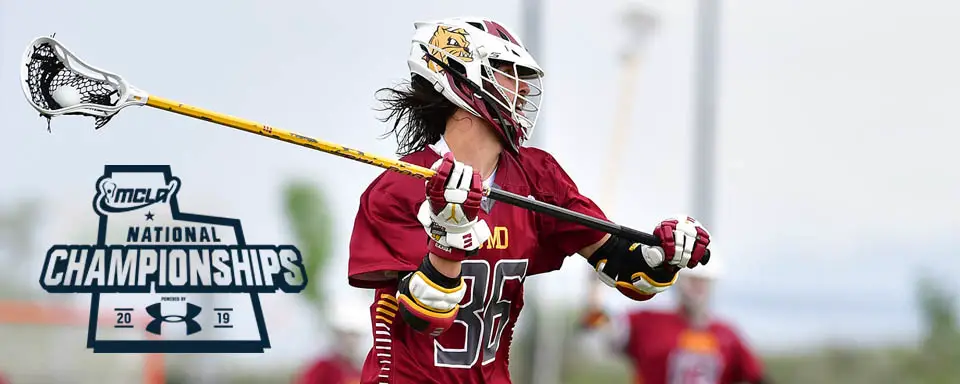As lacrosse continues to grow, there are more high schoolers playing lacrosse than at any point in history. The good thing is that as the community continues to expand, more resources and capital are pouring into the sport. Yet that also means getting successfully recruited into a NCAA program has become increasingly challenging. For this reason, MCLA now caught onto the scene as an alternative for players at colleges that don’t offer varsity NCAA lacrosse.
If you are a high school player who is thinking about MCLA, you are in for a treat! In this post, we will talk about everything you need to know about MCLA, spanning from how it works, the differences between MCLA and NCAA to the pros and cons of MCLA.
Although I never played in the MCLA, I was able to gather some first-hand experience and answers from a friend who played MCLA for two years at college. So I am certain the content is as accurate and helpful as possible!
What is the MCLA

MCLA stands for men’s collegiate lacrosse associate. It oversees more than 200 teams in ten conferences both in the US and Canada. Heavily influenced by the NCAA, MCLA also operates a national tournament in both Divisions I and II that select national champions every year.
The easiest way to think of the MCLA is it’s a close cousin to the NCAA. The organization provides the infrastructure to support a level playing field and a competitive sporting environment through the use of NCAA rules of play. On the individual player’s level, the MCLA promotes “virtual varsity” lacrosse, meaning the level of effort and commitment required mimics that of a NCAA varsity program.
Even though the MCLA looks to catch up to its bigger brother, one determining factor that curbs its potential is that MCLA teams don’t receive financial support from their schools. All MCLA teams are funded by team members through paying dues, running alumni donations, fundraisers, and commercial events. If the team has a great alumni network, donations will make up the largest source of financing.
The fact that over the last decades, MCLA has grown from 70 teams to over 210 teams shows this is a well-run and extremely capable organization. Hence, for students who want to continue playing lacrosse at college but not at the NCAA level, MCLA is the best alternative.
Read also: Best Lacrosse Heads in 2022
Differences between the MCLA and the NCAA
Because MCLA teams are equivalent to lacrosse clubs, MCLA colleges will have different standards and rigorous levels. Top MCLA colleges like BYU, Colorado State and Chapman have very talented and experienced players who could even play at D1 schools. Due to various reasons, every year there are great lacrosse potentials who decided to play MCLA. These teams will also have the most rigorous training schedules and level of time commitment to a NCAA D1 team. Thus, in terms of talent, if we consider the best MCLA colleges, it doesn’t lose to NCAA D1 teams by a big margin.

As alluded to earlier, the biggest difference between the MCLA and the NCAA is the size of their budgets. NCAA is the biggest and most elite collegiate organization, so every year NCAA distributes revenues to colleges to fund different programs and provide scholarships for athletes. This ensures NCAA Division I schools have the budget to recruit the best talents in the nation, if not around the world. In contrast, the MCLA doesn’t grant financial support to colleges. MCLA teams have to find ways to operate on their own.
This then leads to another major difference which is MCLA schools don’t have a recruiting budget. Unlike NCAA coaches that are always actively recruiting for new talents, MCLA coaches don’t do recruitment apart from going to some local tournaments and passive recruiting. And lastly, the MCLA has, unfortunately, no sway over the admission process. Only varsity sports like the NCAA lacrosse can help you gain admission, but it again varies case by case.
Pros and Cons of the MCLA
So what are some pros and cons of the MCLA you must know about? After all, this will be an important decision to make in your lacrosse career. Whether it’s NCAA or MCLA, your goal is to find the path that offers you the best development professionally and individually going forward.

A good balance between academic and lacrosse
This is a very popular reason why many great potentials ended up choosing MCLA. Being an athlete at a D1, even D2 or D3, means 60% of your time is dedicated to training. This leaves them very little time to balance other parts of their lives.
In contrast, MCLA athletes have more freedom and flexibility in their schedules. It’s common to see engineering, pre-med and hard sciences students on the team. They really get the best of both worlds, pursuing both academic excellence and lacrosse.
It’s worth noting your spring semester/quarter will obviously be busier than the other times of the year, so even though it’s manageable, try to avoid taking hard classes in spring semesters to alleviate stress.
Lower barrier to entry
For players who don’t make the cut for NCAA programs, many MCLA schools welcome walk ons and inexperienced players. Because MCLA teams operate as clubs, they are more geared toward amateurs and intermediate players. Depending on the schools, many will welcome as many members as they can as long as they pay the team dues. This is why it’s important to learn about the program beforehand.
That said, if you are a complete beginner, I highly recommend you buy a stick and go through some intense training the summer before tryouts. This will effectively increase your chance of playing MCLA lacrosse. Plus, the reality is most players won’t spend the summer training, so if you can put in some serious effort, you will have a great chance of playing on the field, scoring goals, and making an impact on the game.
Lower odds of going pro
This might seem like a no-brainer, but playing MCLA will hurt your odds of going pro. Since D1 players collect the most attention and publicity, MCLA players will take a back seat in that regard. Also because MCLA operates on a self-funded basis, they don’t have the budget to spend on marketing to attract more eyeballs.
However, never say never. There’s no denying that a few players such as Connor Martin did make professional teams since MCLA was created in 2006. Hence, eventually, it all comes down to what your plan is after college. If you can consistently deliver great performances, news spread fast and people will take notice of you.
Read also: Best Lacrosse Shafts in 2022
How to recruit to play in the MCLA

Aforementioned, the MCLA schools don’t actively recruit talents from high schools. So if you are interested in playing at a MCLA college, how to give yourself an edge over other candidates?
One advantage is based on physical proximity. For example, if your high school happens to be near the BYU college campus, more often than not, the head coach will attend lacrosse camps or tournaments around the area. So a smart way to get in touch with a MCLA team you are interested in is to attend a local summer camp near that college.
If NCAA recruiting is considered more of a two-way street, MCLA recruiting largely depends on the players themselves. During your sophomore or junior year at high school, start reaching out to different schools’ lacrosse programs by filing out their recruiting forms, located under the recruiting section (see Chapman’s recruiting form). This is the best way to get your name out there and let coaches get to know you.
I also confirmed with my friend who played at South Carolina: if there’s any interest, the team coach will respond and likely invite you to a campus visit. This opportunity will give you a significant advantage as you get to meet everyone on the team and make them remember you.
Conclusion
Whether it’s NCAA or MCLA, there’s no right or wrong. This decision depends on your situation and future goals. My friend who played MCLA had so much fun and he didn’t regret it a bit even though he could have gone to a D2 school.
It was a conscious decision he made because he wanted to be near home, have a more balanced college experience and be a top player on the team. Thus, as the last takeaway of this post, list a few reasons why MCLA is a better option than NCAA for you.




